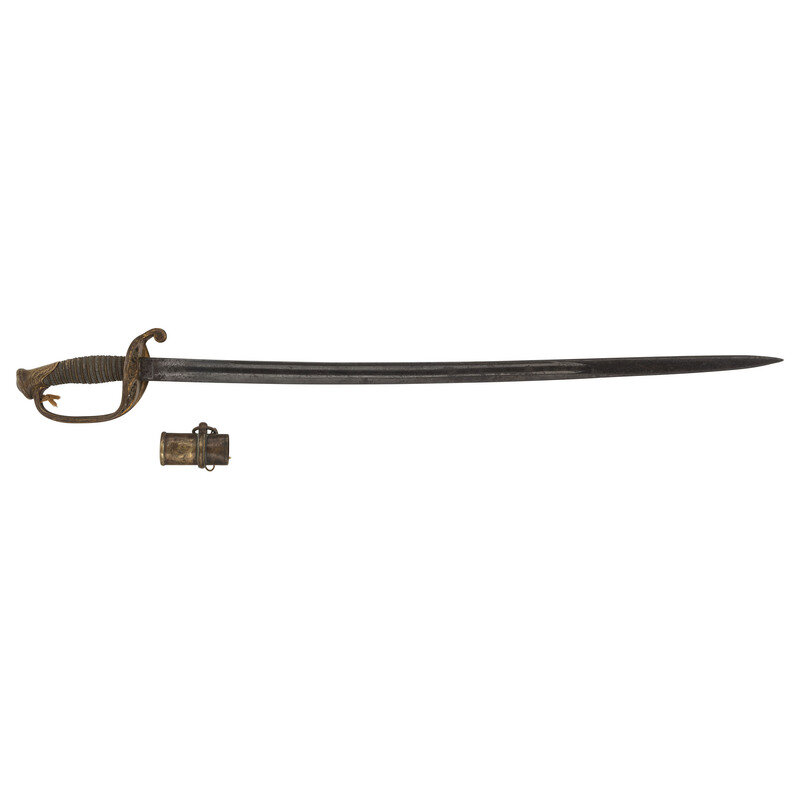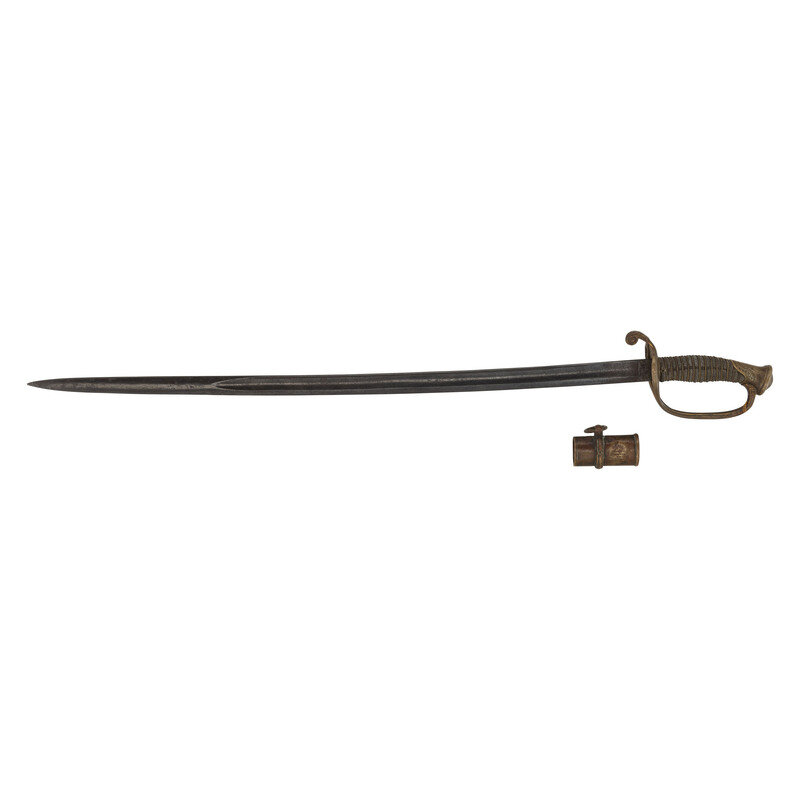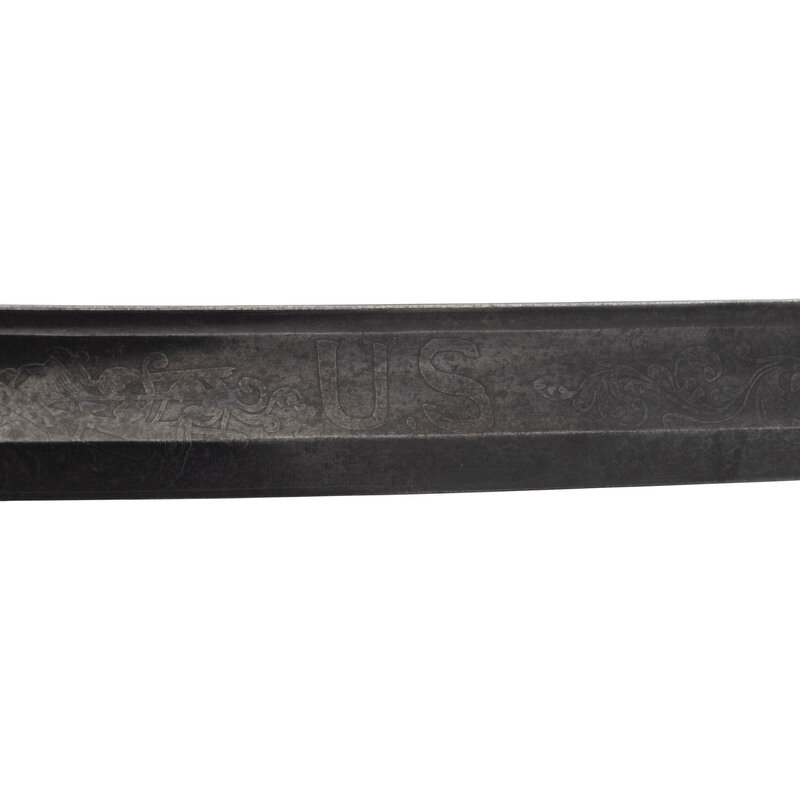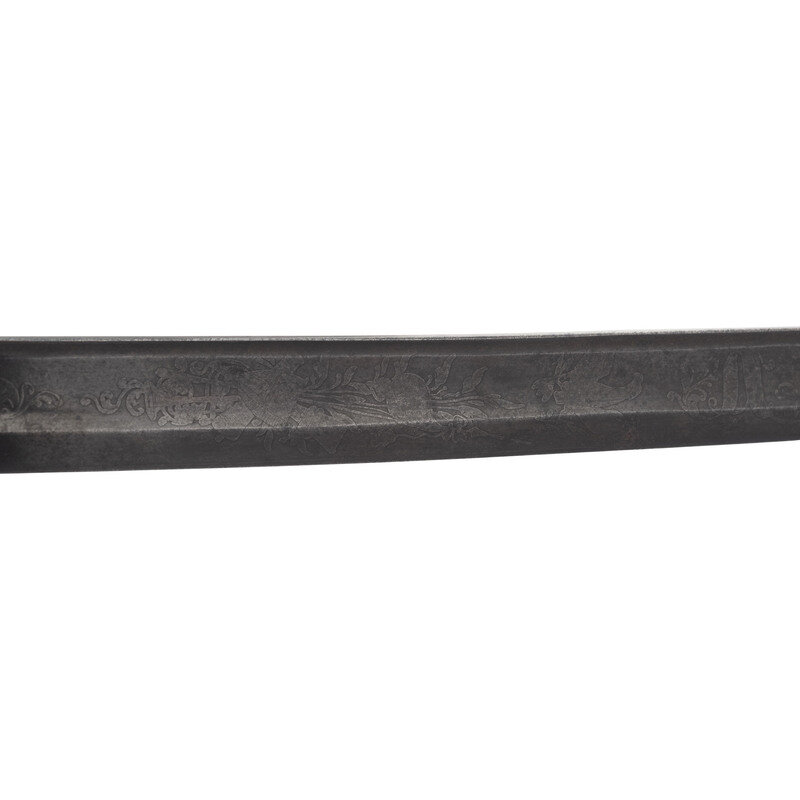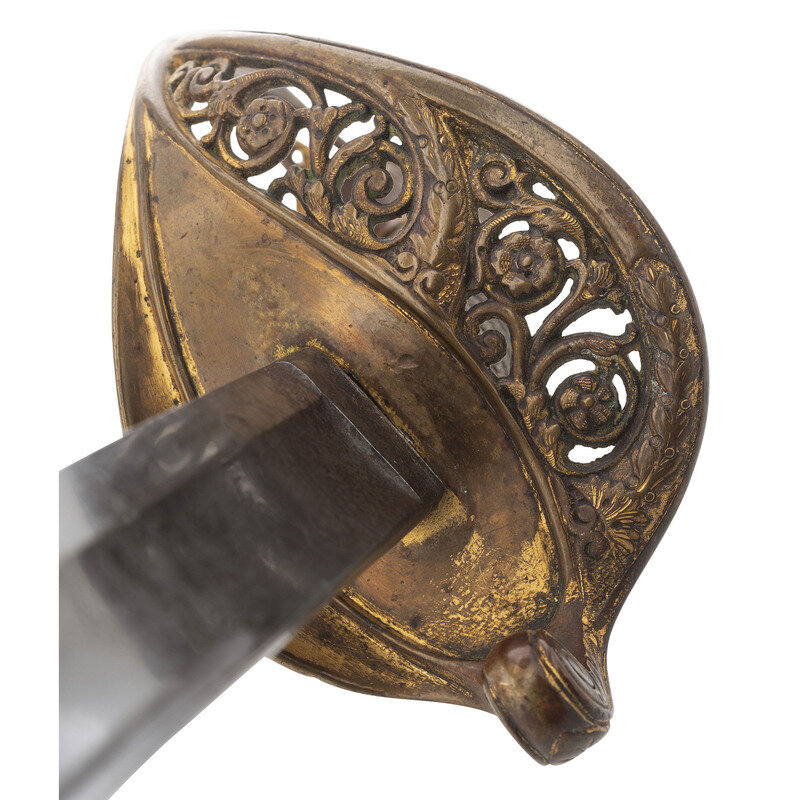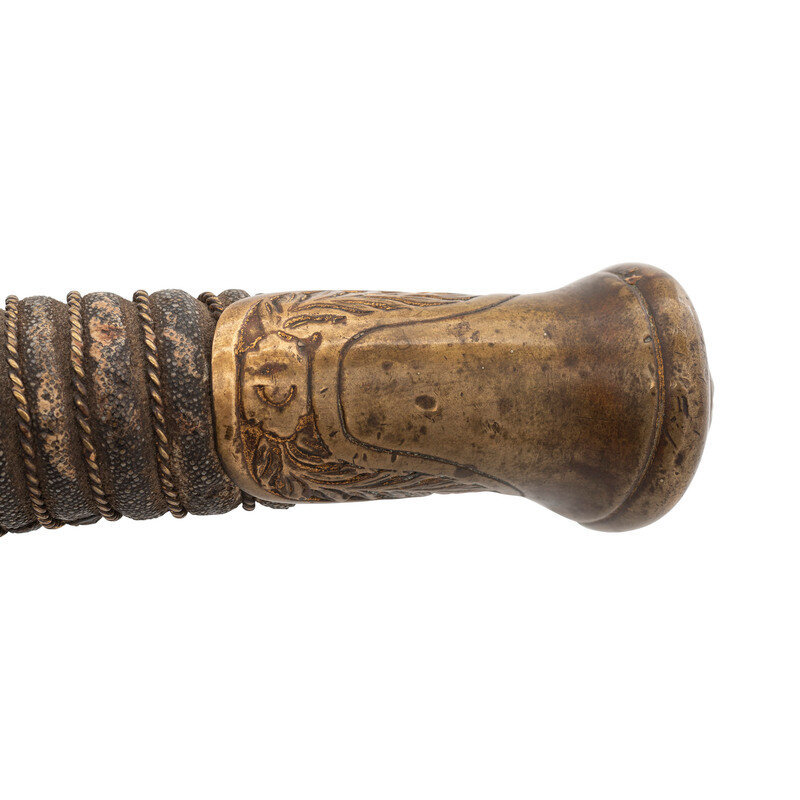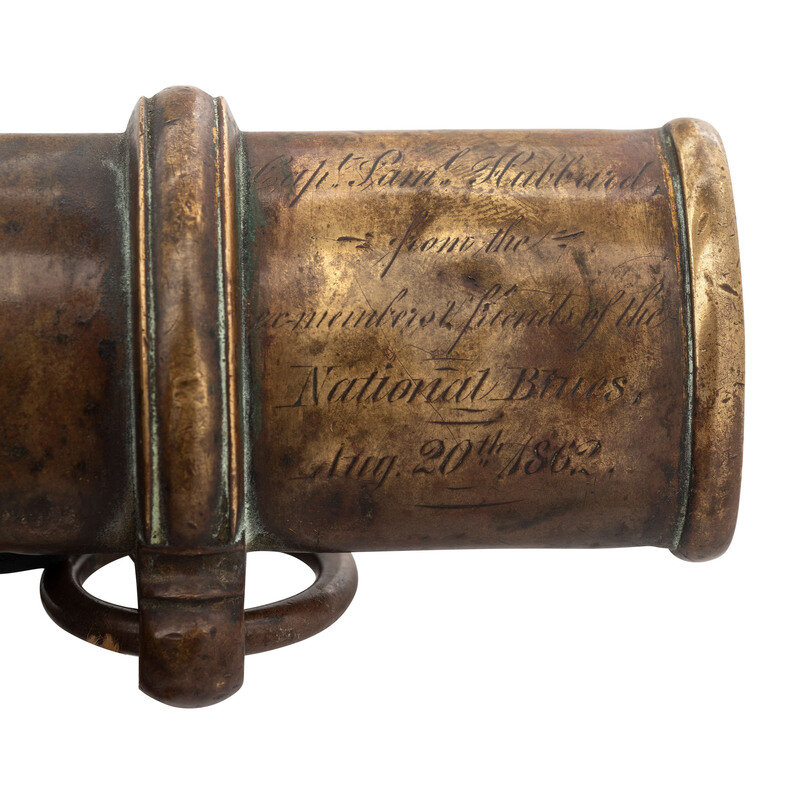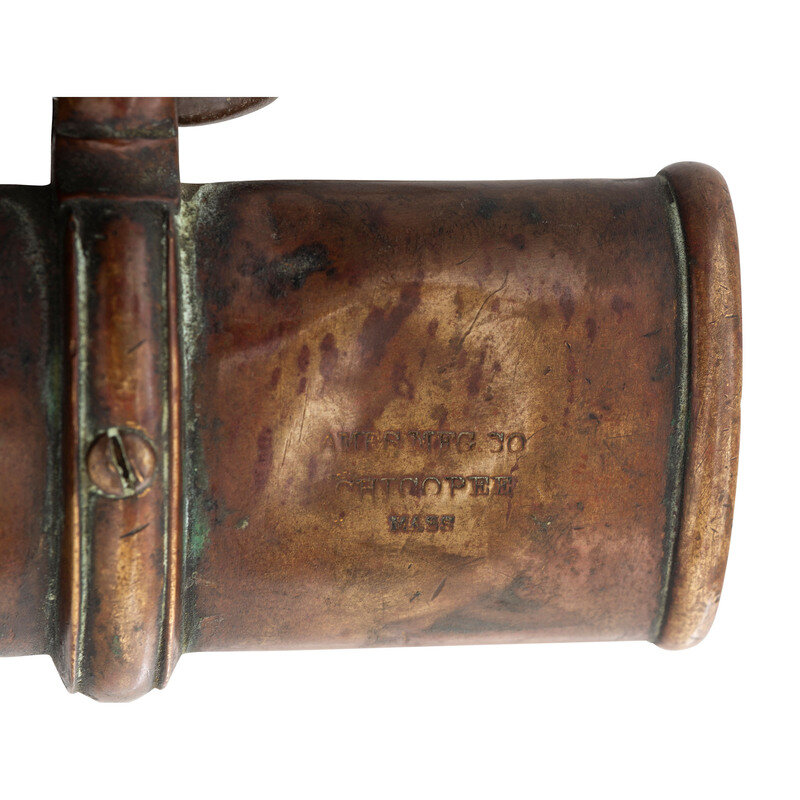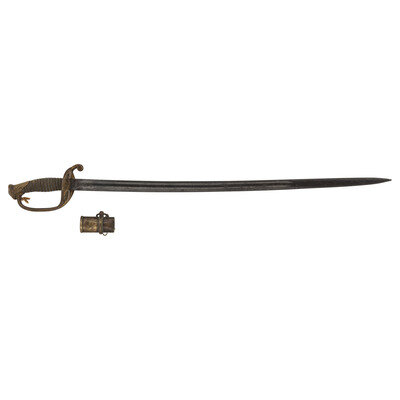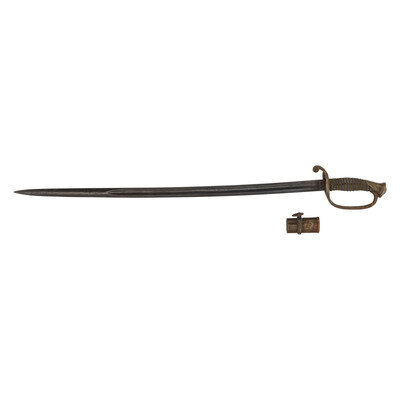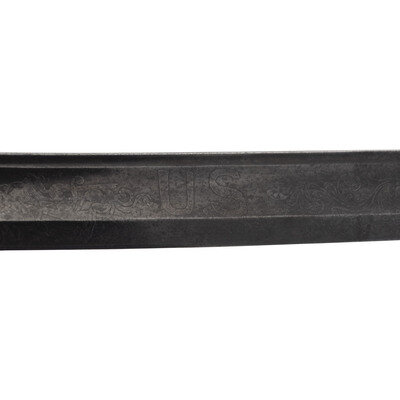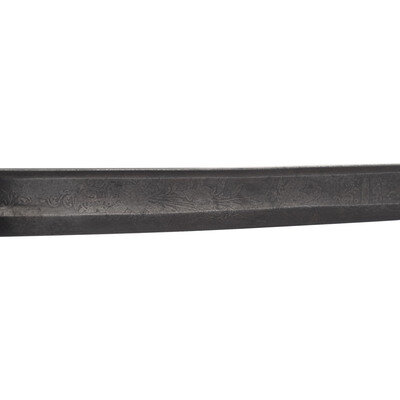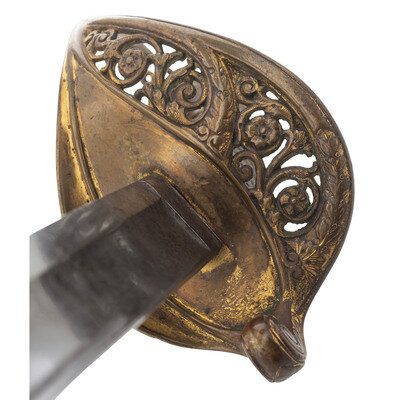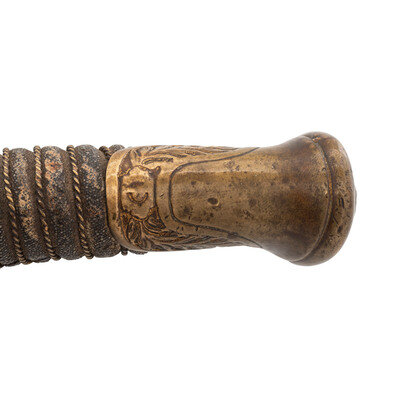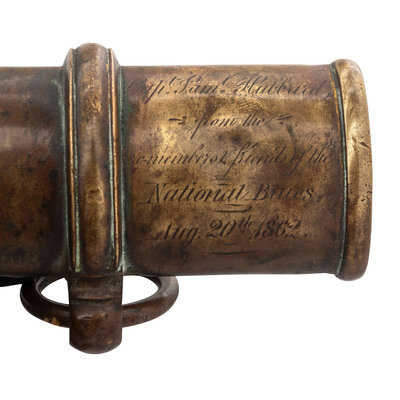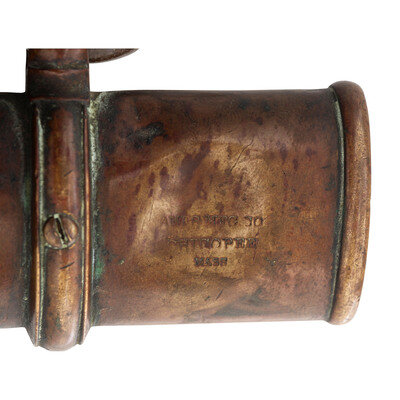Lot 64
30.5" single-edged spear point blade with 20" stopped median fuller. Blade 1.1" wide at ricasso, with a narrow 15" fuller along the spine. Overall length 36.5". 6" gilt brass guard with shagreen covered grooved wood grip, with fifteen wraps of twisted wire. Obverse ricasso etched in three lines Ames Mfg. Co./Chicopee/Mass. Blade with 16" etched panels with flowing foliate sprays, martial themes with tropeis and panoplies of arms and a US on the reverse. Gilt brass scabbard throat marked AMES MFG CO/CHICOPEE/MASS on the reverse and engraved on the obverse Capt. Sam Hubbard/from the ex-members and friends of the/National Blues/August 20th, 1862. There is no scabbard present, only the throat.
While no binder of research accompanied this sword, diligent searching in various on-line databases confirm that this sword was presented to Captain Samuel Hubbard of New Haven, who joined the 15th Connecticut Infantry on July 21, 1862 and was commissioned the Captain of Company D on August 25, 1862. Hubbard had apparently been a member of the pre-war New Haven Blues (also known as the National Blues) a Connecticut "National Guard" militia regiment that has originated in 1828 as a splinter group of the New Haven Grays militia unit. Like so many regiments raised in the East during the first year or so of the American Civil War, the 15th Connecticut was initially sent to the defenses of Washington and remained in the general vicinity of the capitol until they were attached to the 2nd Brigade, 3rd Division, 9th Corps of the Army of the Potomac on December 1, 1862 and were promptly put on the march towards Fredericksburg, VA. They fought at Fredericksburg later that month and started 1863 with the notorious Mud March campaign. In April they were reassigned to the 2nd Brigade, 2nd Division, 7th Corps of the Department of Virginia and took part in the Siege of Suffolk, Dix's Peninsula Campaign and were eventually reassigned Department of Virginia and North Carolina, serving in the 2nd Brigade of Getty's Division. 1864 saw them operating primarily in North Carolina, with most of the time spent in New Berne, and around Kinston. The regiment was mustered out of service on June 27, 1865. On February 2, 1865 Hubbard was dismissed from the service by a General Court Martial. Further research prove fruitful.
